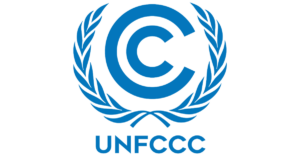UNFCCC and the Crisis of Credibility in Global Climate Governance

- 13 Jul 2025
In News:
The United Nations Framework Convention on Climate Change (UNFCCC), signed in 1992 at the Earth Summit in Rio de Janeiro and enforced from 1994, is the central international treaty to combat climate change by limiting greenhouse gas emissions. With 198 member countries and an annual Conference of the Parties (COP), the UNFCCC provides the primary forum for negotiating global climate action. However, in recent years, its credibility has come under scrutiny due to persistent inaction, structural inefficiencies, and failure to deliver climate justice—particularly for developing nations.
The Credibility Crisis: Key Concerns
A major source of discontent is the failure of developed countries to meet both emission reduction targets and financial commitments under the Paris Agreement and earlier protocols. Vulnerable nations—especially small island developing states (SIDS) and low-income countries—have raised concerns over exclusion from critical negotiations, lack of accountability from wealthier nations, and limited progress on equity and justice.
The withdrawal of the United States from the Paris Agreement during the Trump administration further damaged trust in the multilateral climate process, reinforcing perceptions of the UNFCCC as an ineffective and increasingly irrelevant institution.
Bonn Meeting and Brazil’s Role Ahead of COP30
The mid-year climate talks in Bonn (June 2025) aimed to restore faith in the negotiation process ahead of COP30, to be hosted by Brazil. Brazil has taken an active leadership role by proposing a comprehensive 30-point reform agenda, seeking to make negotiations more inclusive, transparent, and results-oriented.
Proposed Structural Reforms
Key reform suggestions emerging from Brazil and other stakeholders include:
- Streamlining negotiation procedures by eliminating repetitive agenda items, reducing negotiation time, and capping delegation sizes to prevent overcrowding and domination by rich nations.
- Restricting host eligibility: Proposals advocate barring countries with poor climate records—particularly fossil fuel-reliant nations—from hosting COPs. This follows criticism over COP28 (UAE) and COP29 (Azerbaijan).
- Mainstreaming climate discourse across other international platforms, such as the UN General Assembly, IMF, and multilateral banks, to enable faster action through complementary mechanisms.
The Unmet Climate Finance Pledge
Climate finance remains the most contentious issue. Under the Paris Agreement, developed countries had pledged $100 billion per year by 2020 to support climate action in developing countries. However, at the Baku (COP29) meeting, a new proposal of $300 billion per year starting 2035 fell far short of the actual requirement—estimated at $1.3 trillion annually.
Developing countries, especially BRICS and G77, have demanded urgent action to define a new climate finance goal. They stressed the need for finance to be predictable, equitable, and accessible to all vulnerable nations.
Role of Civil Society and Observers
There is growing demand from civil society organizations and observer groups for reforms to ensure greater transparency, restrict the influence of fossil fuel lobbies, and democratize the negotiation process.
Conclusion
While significant reforms may face resistance due to entrenched geopolitical and economic interests, Brazil’s proactive approach marks a turning point. If supported, these efforts could rejuvenate the UNFCCC process by embedding inclusivity, accountability, and justice at its core—essential for addressing the escalating global climate crisis.
